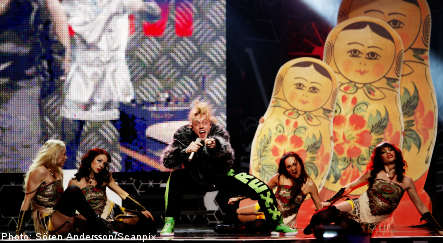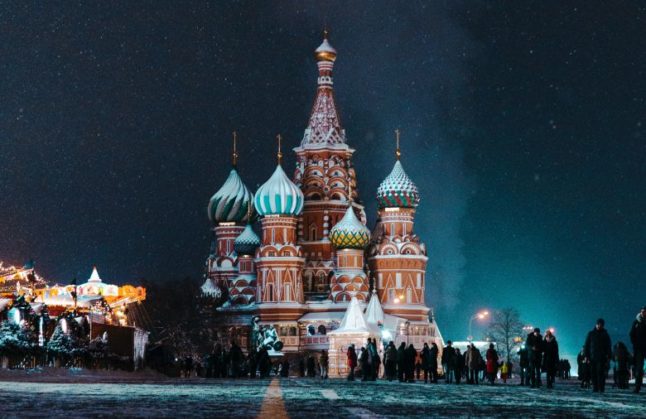The song ’Tingeling’, performed during the interval of the Melodifestivalen final on Saturday, was of course just a joke and Sveriges Television (SVT) had no intention of upsetting anybody. But the question that needs to be asked is: what was SVT’s intention? This so-called “humourous song” certainly wasn’t funny. At best, it displayed a very bad sense of humour.
I’m not going to bring up stereotypes such as Matryoshka dolls, Cossacks and dancing bears. We Russian have already become accustomed to these and no longer really care since they just bear witness to Swedes’ lack of knowledge or interest when it comes to another country. There is no sign of any development when it comes to these stereotypes. Time passes, people and countries change, but Swedes are stuck with an outdated image of the world and are incredibly pleased with themselves.
But that’s not what has aggravated the Russian embassy or Russians who watched the performance on SVT. During the sketch, the Russian national anthem is played and the red star is placed on the backsides of tackily dressed dancers. SVT’s communications manager Helga Baagøe said SVT gives its full backing to the sketch and does not see any reason at all to apologise despite the Russian reaction.
I can actually understand why Saturday night’s events on the Globen stage seem completely unproblematic in Sweden. It’s hard to expect anybody in a country that “missed” the Second World War to understand the importance of the symbols.
So allow me to explain: The red star is an incredibly important symbol for every Russian. It stands for victory over fascism. At least ten million Russians sacrificed their lives in the fight against fascism under the red star flag. It is saddening to say the least to see this symbol used as it is in the Swedish context.
SVT also uses the Russian national anthem in the sketch. As far as I’m aware, national anthems are considered national symbols that ought to be respected. It’s no coincidence that people stand to attention when listening to a national anthem, as even every school child will be able to tell you.
It shouldn’t have been too hard to imagine that this might not strike all viewers as appropriate. And people who work for SVT, Sweden’s largest television broadcaster, should at least be educated enough to recognize certain nuances. At least I’d like to think so.
All the Russian people I know were entirely baffled by the SVT sketch. The production team at SVT needs to realize that it’s not a good idea to use symbols considered very important in another country just to satisfy an audience’s vulgar expectations.
Russian national Anna Titova is a Stockholm-based student and part-time translator who has lived in Sweden for the past two years.



 Please whitelist us to continue reading.
Please whitelist us to continue reading.